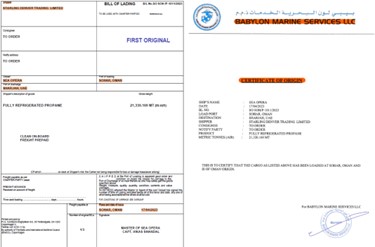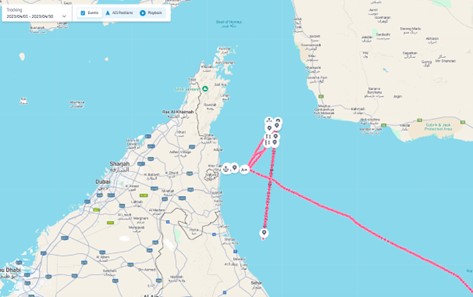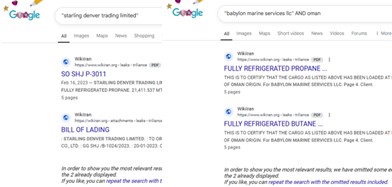OFAC’s latest advisory on Iranian oil sanctions revealed an alarming surge in deceptive shipping practices—from multi-leg STS transfers to AIS spoofing. Confronted with ever-evolving risks, compliance teams need more than static lists: they require a proactive, data-driven solution. Enter Lloyd’s List Intelligence’s Seasearcher platform, which combines AI-powered anomaly detection, rich maritime datasets, and risk-based workflows to transform your sanctions compliance posture.
That’s exactly what happened when Seasearcher pinpointed a seemingly routine LPG shipment that, on closer inspection, was anything but.
In April 2023, charterers believed the tanker Sea Opera (IMO: 9000883; Flag: Cameroon) had loaded propane in Sohar, Oman, on April 17. The bill of lading, issued by Babylon Marine Services LLC, showed all the right paperwork—and yet something didn’t add up.



When Sea Opera’s voyage data first arrived, Seasearcher immediately activated its real-time anomaly detection model. Here’s how each capability played a role:
Risk-Based Triggers
Curious to see the full case study?
Book a consultation today to learn how Seasearcher transforms maritime sanctions compliance.